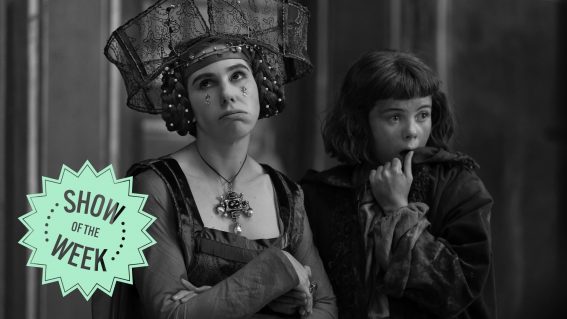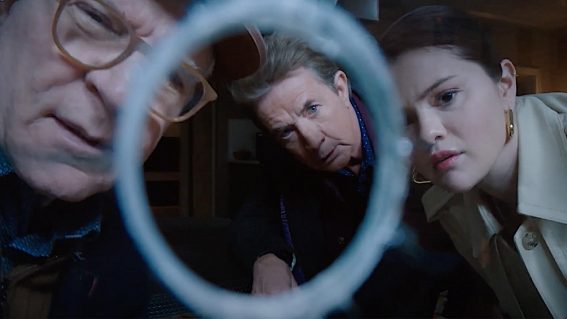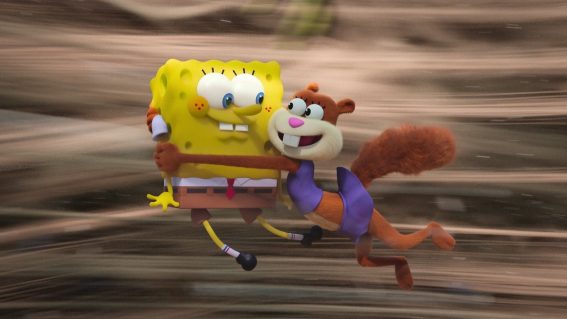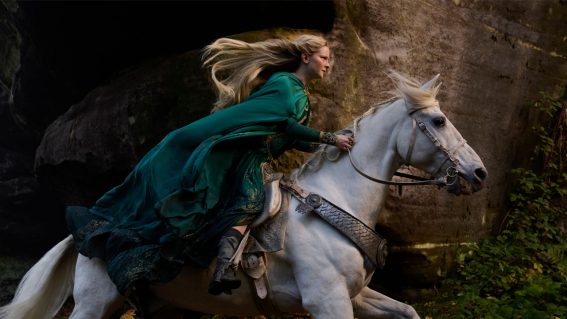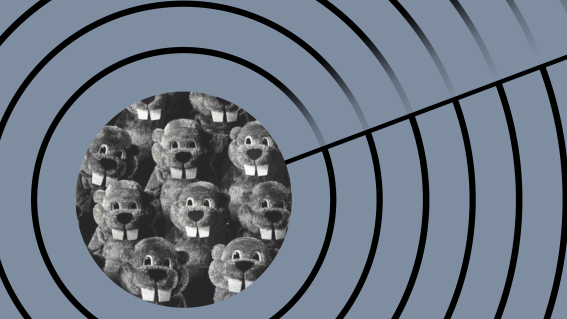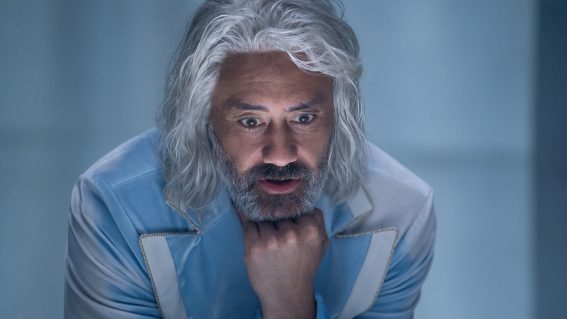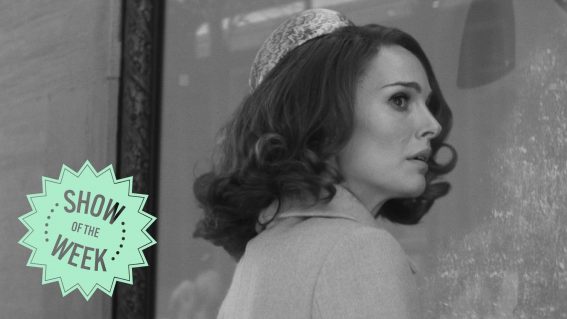An agoraphobe and an insomniac connect in Apple TV+ rom-com Still Up

We’re all drowning in content—so it’s time to highlight the best. In her column, published every Friday, critic Clarisse Loughrey recommends a new show to watch. This week: Still Up, a romance of FaceTime flirtations that Clarisse can’t help but see as a COVID love story.
Still Up isn’t a romcom about the pandemic. There are no face masks, no talk of lockdowns, and no hand-washing rituals. It’s been near-impossible for film and television to capture a global crisis that’s far from resolved. The bad attempts have felt myopic, at times indulgent (see: Netflix’s The Bubble, about rich celebrities bored in quarantine), while the good ones have kept that reality at the sidelines (see: Netflix’s Glass Onion: A Knives Out Mystery, about rich celebrities escaping quarantine).
But, in the same way some of the best works about 9/11 weren’t at all about 9/11—ditto McCarthyism, the Vietnam War, etc. etc.—anyone in search of a cohesive portrait of our particular, contemporary state of mind is best off searching in unexpected places. Take Still Up, a new, somewhat unassuming Apple TV+ series in which Craig Roberts and Antonia Thomas star as a pair of insomniacs caught in a will-they-won’t-they flirtation conducted entirely over FaceTime.
Danny (Roberts) is agoraphobic. He’s physically shut away from the world, and emotionally shut away from love, still caught in the tailwind of a romance that ended (disastrously) three years ago. Lisa (Thomas) is in a committed relationship with a kind but charmless guy, Veggie (Blake Harrison), a YouTuber who films unboxing videos where he unboxes the boxcutters used to unbox boxes.
But, every night, Danny and Lisa withdraw from their own lives and talk. And talk. And talk. And talk. Thomas and Roberts beautifully bounce off each other. It’s joyous. And entirely unforced. Veggie isn’t jealous: Danny, to him, is just “one of the girls”. But audiences are smart enough to see that there’s something more here.
Still Up is, arguably, a fairly weak representation of insomnia. We rarely see the characters up past midnight, have no sense of how sleep deprived they actually are, and are never witness to any of the (often quite destructive) health effects that the condition can have on a person. They talk (briefly) about pills and ASMR apps (Lisa can’t hack them because she starts “fantasising about the sexy voice” trying to lull her to sleep). Someone visits a sleep clinic.
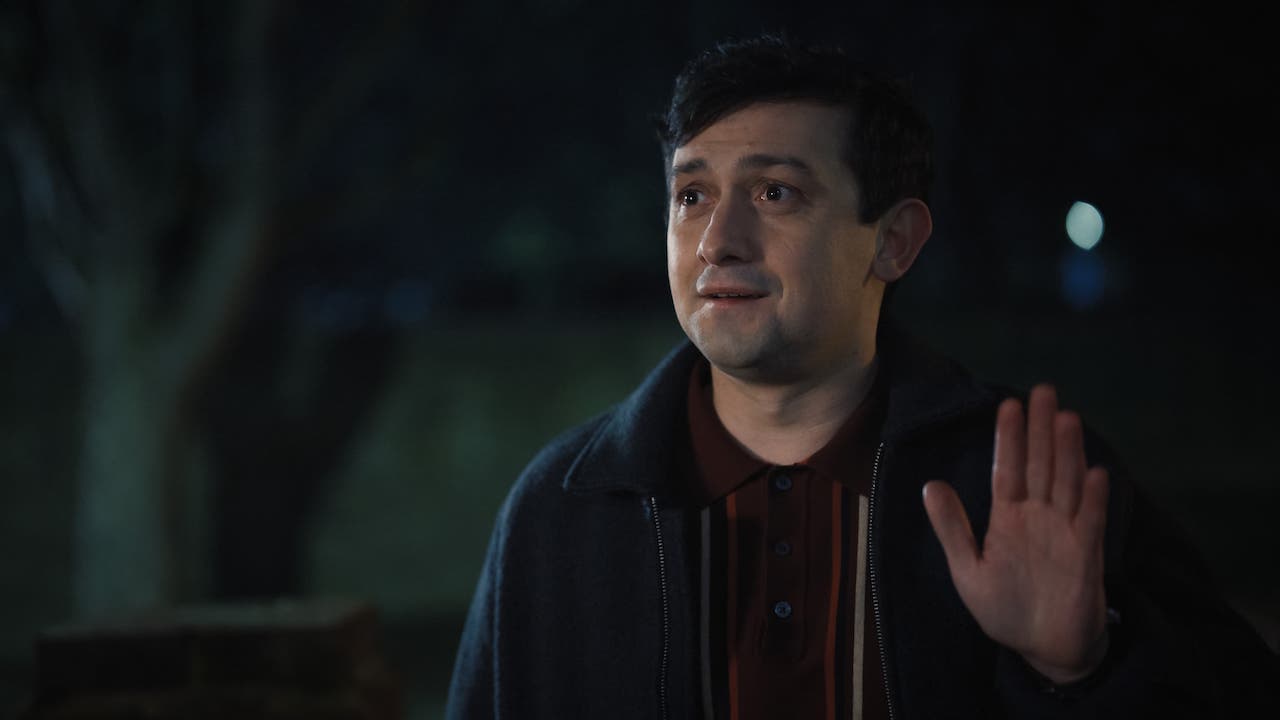
What’s actually different, and striking, about the series is how much of a haven these digital hangouts between Danny and Lisa have become. Creators Steve Burge and Natalie Walter, alongside director John Addis, have crafted an entire world of subtle cognitive dissonance. There are bizarre, unspoken social rules that these characters can’t quite get their heads around, like whether it’s acceptable to turn down an invite to a cat’s birthday party, or whether it counts as theft if a stranger puts on your clothes instead of merely fleeing with them. These scenarios—there’s approximately one per episode—stretch the boundaries of even the show’s internal logic.
But I think that might very well be the point. To Danny and Lisa, the outside world is illegible, while the inside world of their friendship (or relationship, or however you’d like to call it) isn’t. They’ve discovered that their digital home feels more real than their material one. It’s a familiar notion not only to anyone who’s ever had to deal with agoraphobia, but to anyone who experienced those shaky, “fawn stepping on a frozen lake” days when lockdown first lifted. Still Up is one of the most incidentally accurate shows I’ve seen about what we’ve all been through, and it doesn’t even mention rapid lateral flow tests once.



